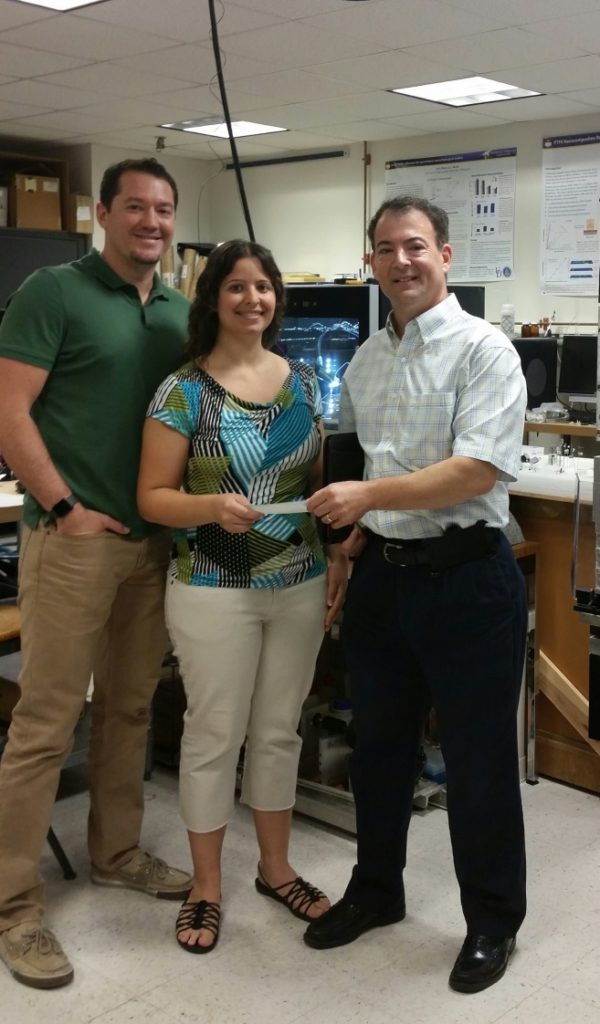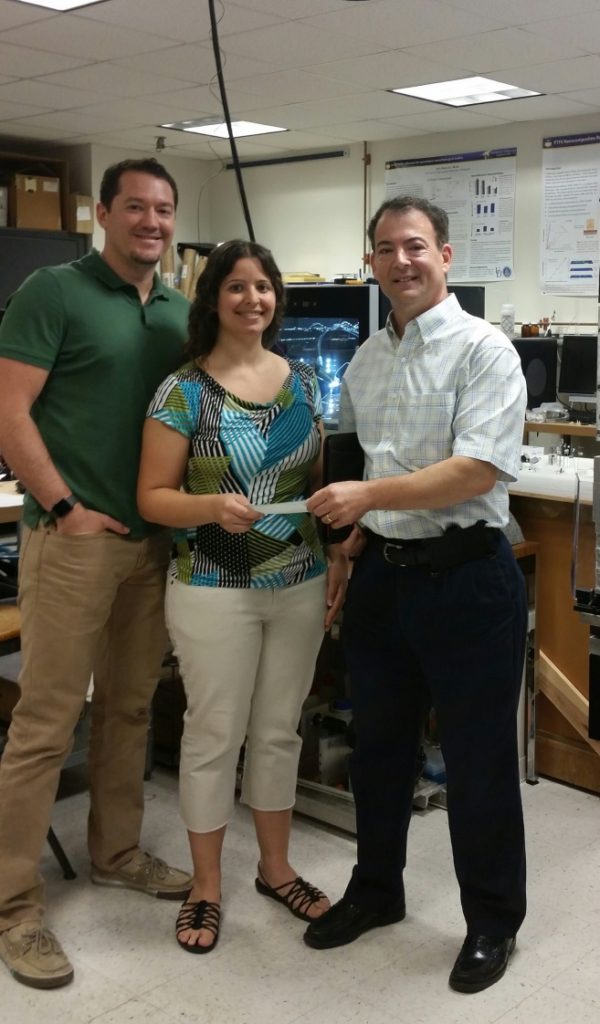 U Delaware Student Wins STLE Award
U Delaware Student Wins STLE Award
The Philadelphia Section of the STLE is pleased to award a $2,000 scholarship to Diana Haidar, a NSF Graduate Research Fellow working in the laboratory of Prof. David Burris at the University of Delaware. Haidar is pictured receiving the award from Scholarship Committee member Rick Nachenberg and accompanied by Prof. Burris.
Haidar’s research focuses on developing tribomaterials capable of low friction and wear resistance in the absence of external lubrication, while operating under extreme environmental conditions. She is currently interested in substituting aluminum for steel in load bearing applications against polymeric solid lubricants. When sliding against steel, these polymers lay down a sacrificial layer of debris onto the counterface; this transfer film protects the polymer from direct contact with the counterface and has been shown to reduce wear rates by multiple orders of magnitude. The benefits of replacing these steel counterfaces with aluminum include reducing weight for improved efficiency, increasing thermal conductivity, and increasing electrical conductivity. This task will be a significant undertaking as aluminum has notoriously poor tribological performance due to a severe form of failure known as scuffing.
To counter the characteristically large-sized debris formation and significant subsurface deformation brought on by scuffing, Haidar is using powder metallurgy to create aluminum based metal matrix nanocomposites that insert alumina nanoparticles between 6061 aluminum microparticles to embed tiny points of weakness throughout the bulk that preferentially release small-sized debris and promote damage compartmentalization.
Haidar has presented her work on aluminum nanocomposites and polymeric solid lubricants as separate projects at three STLE Annual Meetings and two Tribology Frontiers Conferences. She is currently designing a thrust washer tribometer, capable of running a wide range of pressures and speeds, necessary for testing her hypothesis that these materials can function together. By introducing nanosized points of weakness in the aluminum bulk, the polymeric solid lubricants will be provided with an interface stable enough to form a protective transfer film and support low wear. If successful, her work could allow the design of new lightweight bearings with improved functionality.
